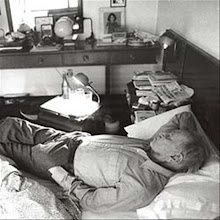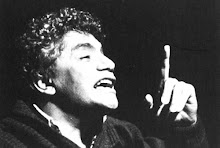Because of the subordination of the political and ideological system to business interests, government policies that private power finds unwelcome will lead to capital flight, disinvestment, and social decline until business confidence is restored with the abandonment of the threat to privilege; these facts of life exert a decisive influence on the political system (with military force in reserve if matters get out of hand, supported or applied by the North American enforcer). To put the basic point crassly, unless the rich and powerful are satisfied, everyone will suffer, because they control the basic social levers, determining what will be produced and consumed, and what crumbs will filter down to their subjects. For the homeless in the streets, then, the primary objective is to ensure that the rich live happily in their mansions. This crucial factor, along with simple control over resources, severely limits the force on the side of the governed and diminishes Hume's paradox in a well-functioningcapitalist democracy in which the general public is scattered and isolated. Once popular organizations are dispersed or crushed and decision-making power is firmly in the hands of owners and managers, democratic forms are quite acceptable, even preferable as a device of legitimation of elite rule in a business-run "democracy." The pattern was followed by U.S. planners in reconstructing the industrial societies after World War II, and is standard in the Third World, though assuring stability of the desired kind is far more difficult there, except by state terror. Once a functioning social order is firmly established, an individual who must find a (relatively isolated) place within it in order to survive will tend to think its thoughts, adopt its assumptions about the inevitability of certain forms of authority, and in general, adapt to its ends. The costs of an alternative path or a challenge to power are high, the resources are lacking, and the prospects limited. These factors operate in slave and feudal societies - where their efficacy has duly impressed counterinsurgency theorists. In free societies, they manifest themselves in other ways. If their power to shape behavior begins to erode, other means must be sought to tame the rascal multitude. When force is on the side of the masters, they may rely on relatively crude means of manufacture of consent and need not overly concern themselves with the minds of the herd. The modalities of state terrorism that the United States has devised for its clients have commonly included at least a gesture towards "winning hearts and minds," though experts warn against undue sentimentality on this score, arguing that "all the dilemmas are practical and as neutral in an ethical sense as the laws of physics."
Noam Chomsky


![[...]](https://blogger.googleusercontent.com/img/b/R29vZ2xl/AVvXsEjeNC2Kyxd34r2LuofHe9-vdXHeHwG3_2NhVmIOTlK2moU0Q4R7taMlS8iMmQgEl1-NdaRsPrLdREzfQZYKfUgjslwLZUZe67dAfFBREu-YRx6WGX-vAUt5eJT4_-lFwT4dGzGCQQ/s220/11798115_858304687558226_1857652538_n.jpg)














































